
ASEAN is in good shape and on an upward trajectory
Latest
| TIN LIÊN QUAN | |
| Government bodies discuss ASEAN cooperation | |
| Vietnam attends ASEAN-EU dialogue on sustainable development | |
Do you think ASEAN is now in a better shape than it was five years ago in terms of regional unity and integration?
ASEAN market integration on the ground still hangs in the balance and will ultimately be judged by whether and how far it helps reduce transaction costs and augment intra-regional trade and investment. Great progress has been achieved on many fronts, but the limitation is in national implementation.
I am more encouraged by the fact that countries and people in the region are now more connected, in both the virtual and physical sense. ASEAN skies are being opened, especially with the booming of low-cost carriers. Higher internet penetration and more affordable access have revolutionized the way we communicate and trade.
Unfortunately, greater connectivity has not translated into a higher degree of regional unity though basically it has been maintained or restored even in bad times. We need to do more to promote understanding and foster networks of social, cultural, economic and political relations, which in turn could increase mutual empathy and support.
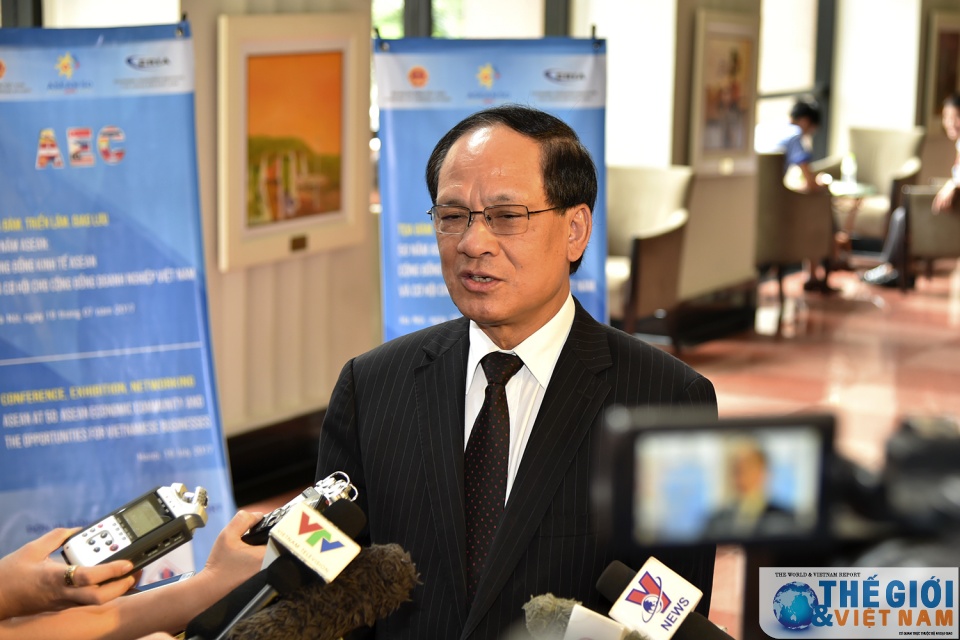 |
| H.E. Le Luong Minh, former Secretary-General of ASEAN. |
What were the most memorable moments in your term as the Secretary-General? And what was the most difficult point?
I have had the honour of witnessing two ASEAN milestones – the formation of the ASEAN Community and ASEAN’s 50th anniversary – which are the result of legions of dedicated men and women who had served the ASEAN cause, including all my twelve illustrious predecessors. The most memorable moment was when I received for depositary from Prime Minister Razak of Malaysia the ASEAN Declaration announcing the birth of the ASEAN Community in December 2015.
Not quite difficult, but rather uncomfortable, was while I had always been conscious to keep the exclusively ASEAN character in my message about the issues confronting ASEAN, my messages were sometimes twisted otherwise by politically-motivated ASEAN watchers linking them to my being a Vietnamese diplomat and just putting into or cutting words from my mouth. While remaining hundred percent a patriotic national of integrating Vietnam, I have served ASEAN with hundred percent of my commitment to the organization.
The Secretary-General is often considered, wrongly in our opinion, as more of a “secretary” than a “general.” How do you answer to these views?
I do not see any relevance to this question that I have heard or seen asked for in-coming and out-going Secretaries-General of ASEAN. Different secretaries-general may have been subjected to different assessments of their performance, but being a Secretary-General has nothing to do with being a “secretary”, more so with being a “general”. One cannot ask if a Governor-General is more a “governor” or a ‘’general”, or an inspector-general more an “inspector” or a “general”. The Secretary-General of ASEAN has the mandate to implement as stipulated in the ASEAN Charter and his or her performance is assessed by the Member States.
How has the ASEAN Secretariat transformed in the last few years? If you were empowered to effect one change in the ASEAN Secretariat, what change would you introduce?
All ASEAN countries have strongly and consistently supported the strengthening of the Secretariat. Coordination is better across departments and with national secretariats. Monitoring and evaluation work has been enhanced; discipline tightened.
The Secretariat’s budget has steadily increased and its manpower has been boosted with many new positions added to its structure during my term. In the next few years, we would have more working space with the new building to cater to the Secretariat’s expanding roles and needs.
I would expect the Secretariat staff to be more analytical than descriptive in their reporting and sharpen their policy analysis rather than being purely process-driven. ASEAN would benefit from a professional Secretariat with sufficient expertise and confidence to inject frank and objective inputs.
The Secretariat must be more proactive and innovative in helping ASEAN think through and formulate new ideas. It should also be allowed to be bold and robust in monitoring and reporting the implementation of ASEAN agreements, and making recommendations accordingly.
There are as many optimists as pessimists when it comes to ASEAN. How would you win the hearts and minds of the pessimists?
As they say, the proof is in the pudding. ASEAN must do a better job to demonstrate to its 640 million people that ASEAN works for them. You do not win over sceptics by declarations and even plans of action if they are more about “plans” than “actions.” Half the battle would be won if all the Member States consistently inform and educate their citizens about the areas and circumstances where ASEAN has made a material and tangible difference to their quality of life.
More often than not, when things do not work, ASEAN takes the rap and criticism sometimes come from unwarranted high expectations. Explaining ASEAN – what it is and what it is not – could promote a better understanding of and more grounded support for the Community.
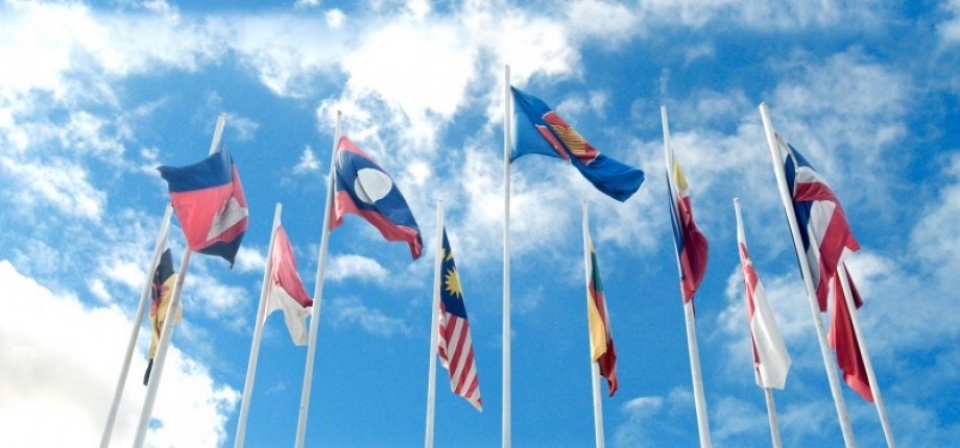 |
What is the single most challenging issue facing ASEAN today?
Generally, ASEAN is in good shape and there is enough forward momentum to keep ASEAN on an upward trajectory. However, I fear that a silent threat is lurking. The impact of its membership expansion cannot be underestimated. The strategic bond that keeps cohesion and nurtured the intra-mural solidarity so far cannot be taken as a given in the fast-changing regional context.
The increased diversity and divergence in strategic outlooks among the Member States, amplified by external influences, have at times left ASEAN bereft of any effective mechanism to handle disagreements, increasingly turning ASEAN into a “tyranny of one” where a dissenting position can override the will of the other nine. If ASEAN is serious to maintain its centrality, it needs to find a way to work through differences and speak with one voice.
The ASEAN Community has come into being but its presence is hardly felt by the ordinary people. What more can be done?
We should not be expecting an instantaneous payoff. The ASEAN Community could be compared to a fruit tree. We planted the seed in 1967 when the five founding members established ASEAN. By 2015, the tree is robust and while waiting for more flowers to bear fruit, we enjoy the shade that it provides and any early harvest it yields. Constructing a community of 10 sovereign states is no small feat. We need a lot of patience, perseverance and faith in regionalism. Most importantly, ASEAN needs to regain and strengthen the commitment to the “we-feeling”. A community only works when it is united in purpose and commitment.
Between "ASEAN should move along at a pace comfortable to all" and "ASEAN could have done more", which one would you find more palatable?
Both approaches are important and have served ASEAN well in the past 50 years. But I would give more currency to the latter approach. We are witnessing an interesting phenomenon around the world where a large swathe of communities clamours or change.
In a fast-changing world with the fourth industrial revolution and the growth of artificial intelligence, ASEAN may be left behind employing only a slow and steady approach. The Member States must inject greater political will and investment into this regional project so that ASEAN can rise to the expectations of the new generation of Southeast Asians.
The unfolding power reconfiguration and competition in East Asia are putting a lot of stress on ASEAN unity and centrality. What would be the best way forward for ASEAN?
ASEAN has achieved much more in improving the lives of Southeast Asians in the last decade than at any point in the past 50 years. We have expected more of ASEAN unity. Having gone through ups and downs, ASEAN must re-learn the lesson that when and only when it’s united, ASEAN succeeds. Greater regional interdependence and resiliency could help ASEAN navigate through internal and external challenges resulting from differences. ASEAN must be able to turn diversity into a real advantage though it may be a tall order.
After five years in the trade, how has your view of ASEAN changed?
ASEAN is the guarantor of regional peace, the glue that keeps most diverse Southeast Asian nations together and strives for shared prosperity. I have served ASEAN with this conviction that remains.
What is the most important takeaway from your five years as the Secretary-General of ASEAN?
The ASEAN Community conceptualized decades ago finally became a reality. Its far-reaching Vision has in it the power to ensure ASEAN’s further development and perfection as a resilient, rules-based, people-centred Community playing greater roles regionally and globally. ASEAN unity and solidarity facing not small challenges have been basically maintained. ASEAN‘s international standing has never been higher. The ASEAN Secretariat has been much further strengthened: more organized, more coordinated, better equipped, more down-to-work, more disciplined and united- or, in the Vision language: more rules-based and people-centred. I am glad to have been part of these changes.
If there is an advice you would like to share with your successor, what would it be?
I do not think I have the privilege of sharing with the senior diplomat that I have known with respect over the years working together in different ASEAN platforms any advice other than not bothering the Secretary-General of ASEAN may be considered more as a “secretary” than a “general”. To us, people of conviction, as I learned even from my inferior colleagues: Leadership is not a position or title. It’s action and example.
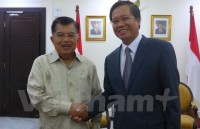 | Vietnam-Indonesia relationship contributes to ASEAN development: diplomat Vietnam-Indonesia relationship has effectively contributed to the common development of the ASEAN Community, said outgoing Vietnamese Ambassador to Indonesia Hoang Anh Tuan. |
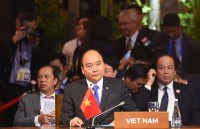 | PM Nguyen Xuan Phuc attends ASEAN summits with partners Prime Minister Nguyen Xuan Phuc has expressed appreciation for ties with partner countries and lauded their commitments to building the ASEAN Community and upholding its ... |
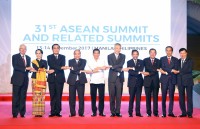 | Vietnam works to realize ASEAN Community Vision 2025 At the 31st ASEAN Summit and related meetings opened on November 13 in Manila, Prime Minister Nguyen Xuan Phuc and leaders of ASEAN and dialogue ... |

















